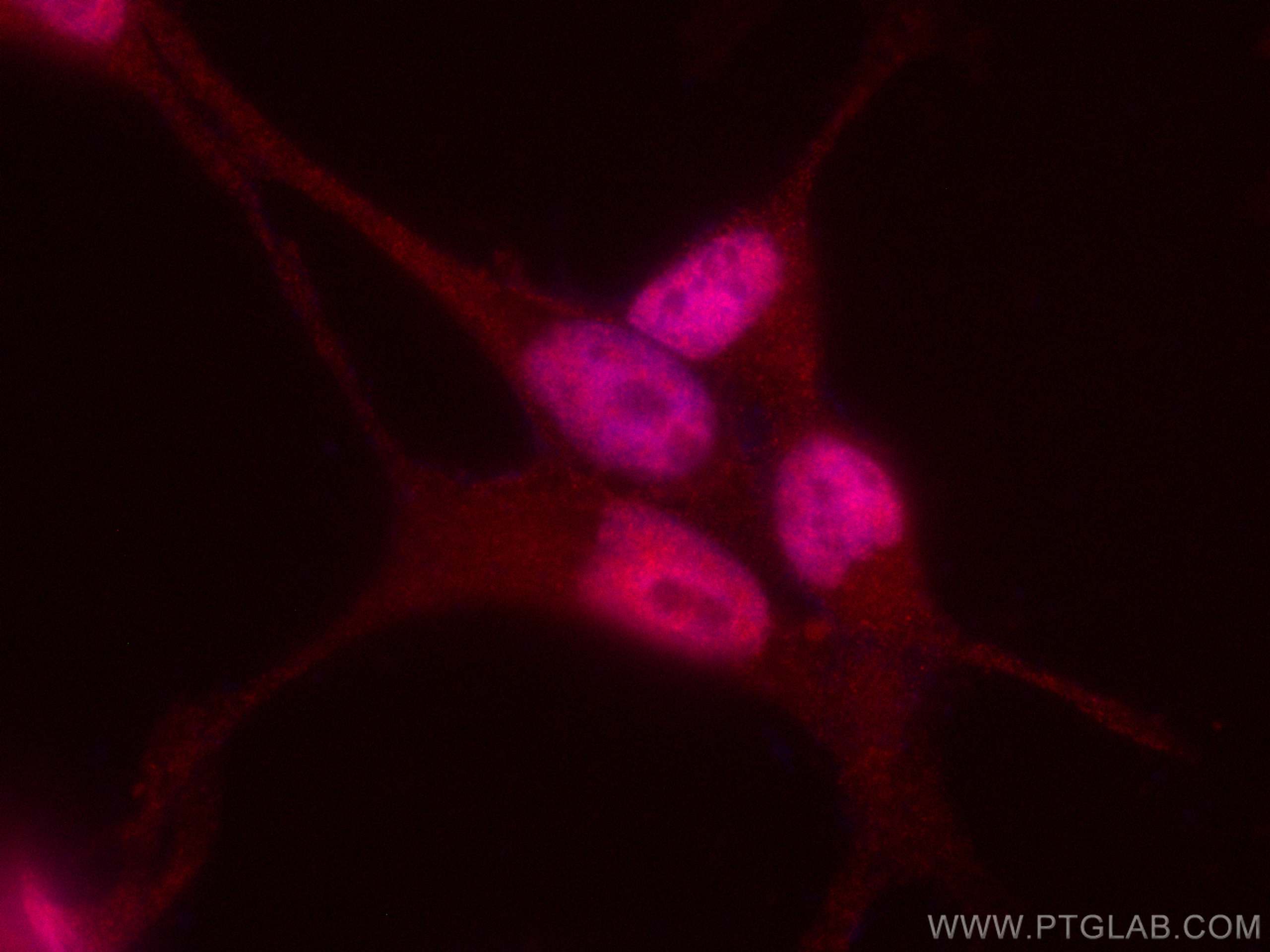Tested Applications
| Positive IF/ICC detected in | LNCaP cells |
Recommended dilution
| Application | Dilution |
|---|---|
| Immunofluorescence (IF)/ICC | IF/ICC : 1:50-1:500 |
| It is recommended that this reagent should be titrated in each testing system to obtain optimal results. | |
| Sample-dependent, Check data in validation data gallery. | |
Product Information
CL594-66747 targets AR in IF/ICC applications and shows reactivity with Human samples.
| Tested Reactivity | Human |
| Host / Isotype | Mouse / IgG2a |
| Class | Monoclonal |
| Type | Antibody |
| Immunogen | AR fusion protein Ag17291 Predict reactive species |
| Full Name | androgen receptor |
| Calculated Molecular Weight | 914 aa, 99 kDa |
| Observed Molecular Weight | 110-120 kDa |
| GenBank Accession Number | BC132975 |
| Gene Symbol | AR |
| Gene ID (NCBI) | 367 |
| RRID | AB_2934741 |
| Conjugate | CoraLite®594 Fluorescent Dye |
| Excitation/Emission Maxima Wavelengths | 588 nm / 604 nm |
| Form | Liquid |
| Purification Method | Protein A purification |
| UNIPROT ID | P10275 |
| Storage Buffer | PBS with 50% glycerol, 0.05% Proclin300, 0.5% BSA, pH 7.3. |
| Storage Conditions | Store at -20°C. Avoid exposure to light. Stable for one year after shipment. Aliquoting is unnecessary for -20oC storage. |
Background Information
AR, also named as DHTR and NR3C4, belongs to the nuclear hormone receptor family and NR3 subfamily. AR is a ligand-activated transcription factors that regulate eukaryotic gene expression and affect cellular proliferation and differentiation in target tissues. Transcription factor activity is modulated by bound coactivator and corepressor proteins. AR is activated, but not phosphorylated, by HIPK3. Defects in AR are the cause of androgen insensitivity syndrome (AIS), previously known as testicular feminization syndrome (TFM), which is an X-linked recessive form of pseudohermaphroditism due end-organ resistance to androgen. Defects in AR are the cause of spinal and bulbar muscular atrophy X-linked type 1 (SMAX1) which also known as Kennedy disease. Defects in AR may play a role in metastatic prostate cancer. Defects in AR are the cause of androgen insensitivity syndrome partial (PAIS) which also known as Reifenstein syndrome. AR exists various isoforms with MV 110-120 kDa and 75-80 kDa. (PMID: 19244107 )
Protocols
| Product Specific Protocols | |
|---|---|
| IF protocol for CL594 AR antibody CL594-66747 | Download protocol |
| Standard Protocols | |
|---|---|
| Click here to view our Standard Protocols |



